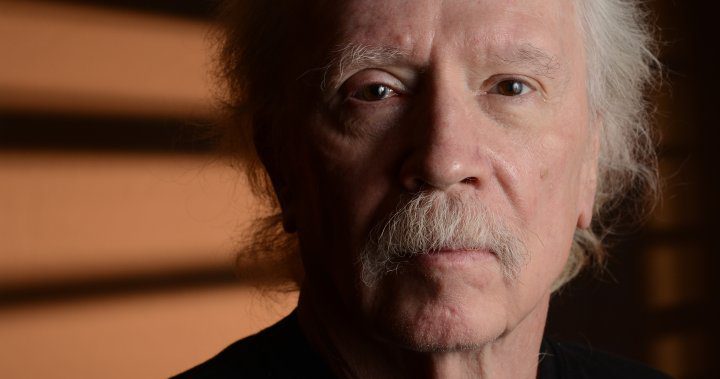[ad_1]
Grasp of horror John Carpenter, director of iconic films Halloween, The Factor, Escape From L.A. and plenty of others, is popping his distinctive gaze towards the small display.
In John Carpenter’s Suburban Screams, the six-episode anthology collection explores the horrors that exist in our personal backyards — the little, mundane issues that we might not consider as scary however truly are. What goes on behind the closed doorways of suburbia, the cookie-cutter houses in equivalent neighbourhoods locked in labyrinthine mazes of roads?
Suburban Screams, in a sort-of true-crime documentary method, goals to seek out out.
As we gear up for Halloween, the collection tells six chilling tales, each allegedly based mostly on a real story. Two are based mostly in Canada. Carpenter executive-produces the collection and is the director of 1 episode, The Telephone Stalker, a couple of Lengthy Island, N.Y., girl who has been incessantly stalked by an nameless man since 2017.
The 75-year-old Carpenter additionally created the rating for the collection; that’s proper, he’s not only a cinematic thoughts, however a musical one as nicely. (Over the previous decade he has launched 5 albums and has gone on world excursions for his music.)
International Information acquired on the telephone with Carpenter for a quick chat in regards to the collection and composing horror and music.
International Information: To start with, it’s an actual honour to talk to you. I grew up within the ’80s and ’90s and watched a ton of horror films. So thanks for every thing.
John Carpenter: Completely. My pleasure.
I recognize you for warping my younger mind.
Oh, nicely, I’m sorry about that. [Laughs]
How did this explicit collection, Suburban Screams, come about?
Effectively, we found it and it was provided to us, my spouse [Sandy King] and I. It’s made up of true tales by which we give attention to the survivor of some horrible ordeal — it may very well be supernatural, it may very well be actual. I selected to direct one a couple of telephone stalker.
I perceive you directed that remotely?
Sure. I used to be excited to do it as a result of it was distant directing. We had a hook-up in order that the forged and crew have been taking pictures in Prague and I used to be directing from my lounge right here in Los Angeles.
That could be a candy deal.
Oh man, you recognize it.
I learn that you simply have been doing it in the identical place the place you play video video games as nicely.
That’s proper! [Laughs]
John Carpenter directing an episode of ‘Suburban Screams’ from his house in L.A.
Trae Patton/PEACOCK
Why did you select to direct that particular episode?
I believed as a director, I may do one thing with it. I additionally discovered a extremely terrific actress, Julie Stewart, to play the lead, and off we went.
You additionally composed the music for this present. Did you get pleasure from it as a lot because the route aspect?
Sure, I like it. I like it!
The second coming of John Williams?
[Laughs] Oh my god, please. No.
What I discover actually fascinating in regards to the present is how the best issues are typically the scariest issues. Suburbs can appear so clear and cookie-cutter, however there’s some sinister stuff while you get beneath the floor.
They’re, boy, typically they’re! And the suburbs, sure, they could be a darkish and scary place.
In my job, you gotta make it scary, and it needs to be performed in a cinematic manner. Something will be scary. Something. As you may see, the world is a reasonably scary place. Choose your spot.
Actuality is scarier then fiction, particularly now. How does horror stay on regardless of all of those real-life horrors?
Effectively, horror is a response, actual horror is a response to stuff. Cinematic horror is a illustration. It may be costume films, it may be drama, it may be science-fiction, it may be all types of issues. It doesn’t should be pulled from the headlines, however typically one desires to get away from the headlines and have a catharsis by yourself, have a scary expertise possibly with anyone you like, or an viewers, and be protected. That’s what horror offers.
Trendy horror has splintered into… I assume I’d name them subgenres. What are your ideas on the fragmentation now?
Horror is all in regards to the story. Don’t even take note of that different stuff. Don’t fear about strategies like bounce scares or stuff like that. Horror is the story you’re telling — what’s the story about?
And pay attention, evil is historical. Nature has it, individuals have it. It’s in every single place, and it’s continuously with us. It is determined by how we react to it, how we cope with it, how we tame it.
—
—
(This interview has been edited and condensed.)

© 2023 International Information, a division of Corus Leisure Inc.
[ad_2]








